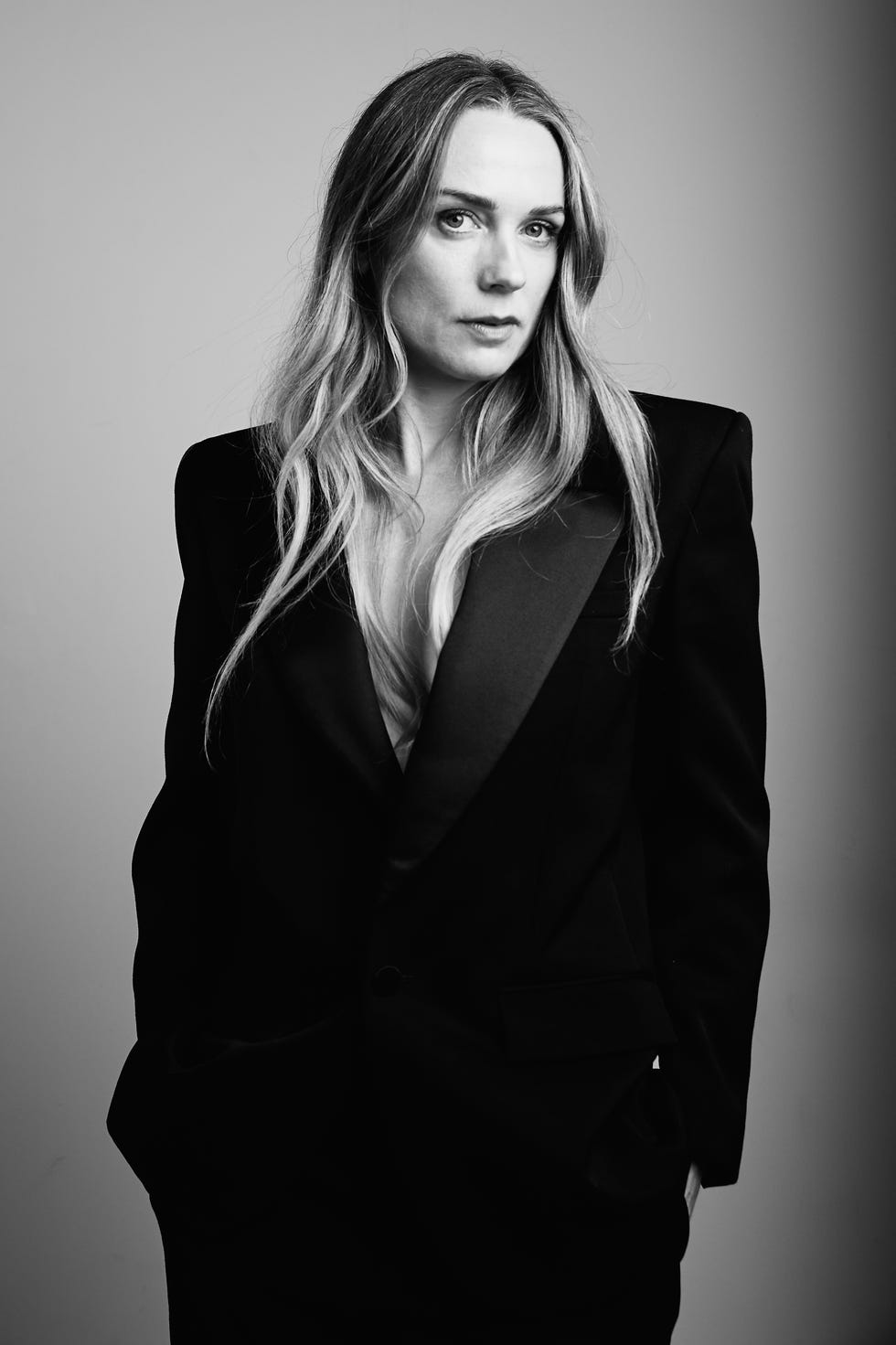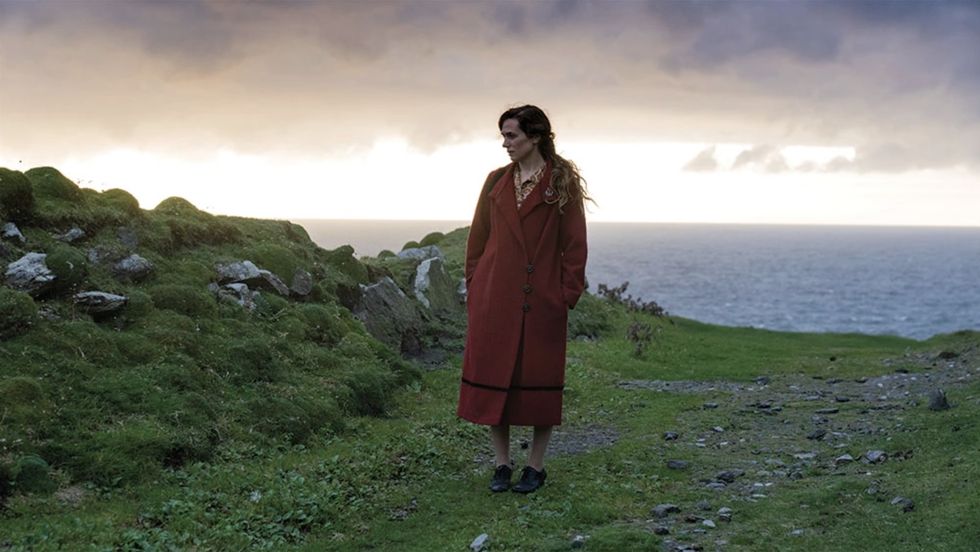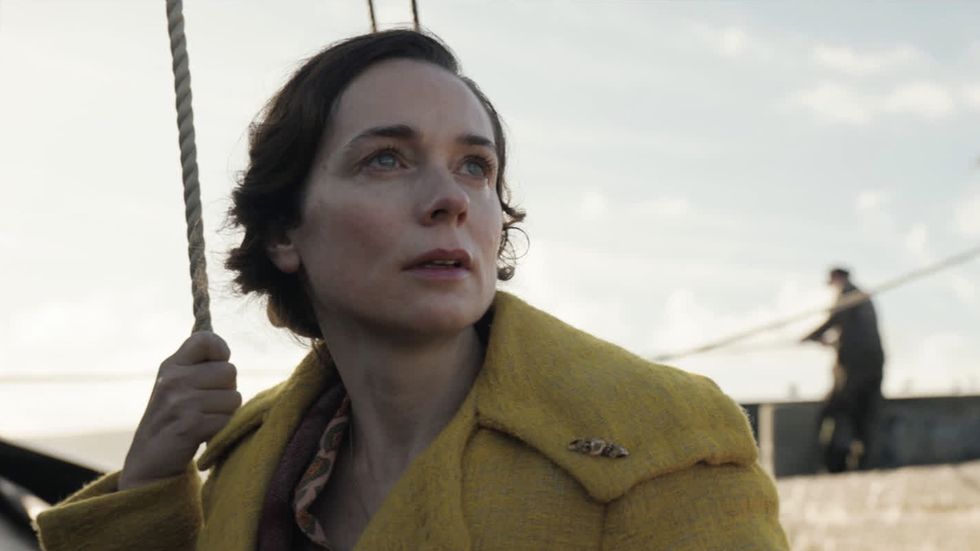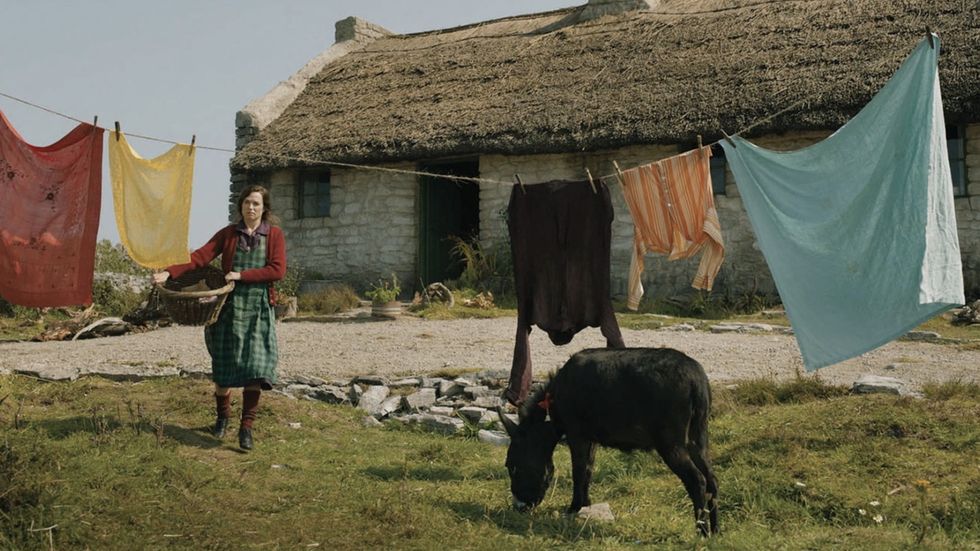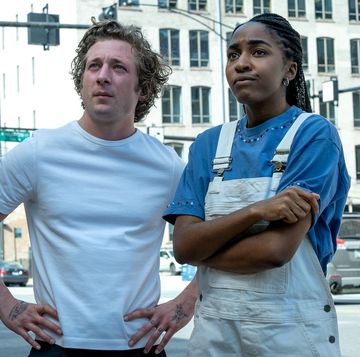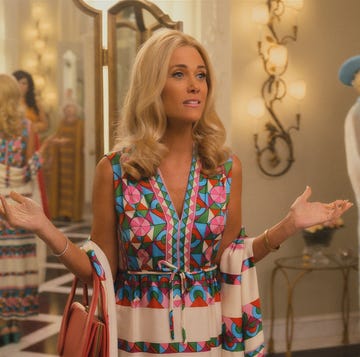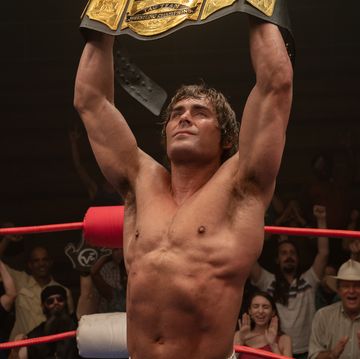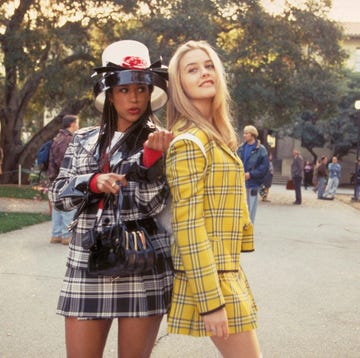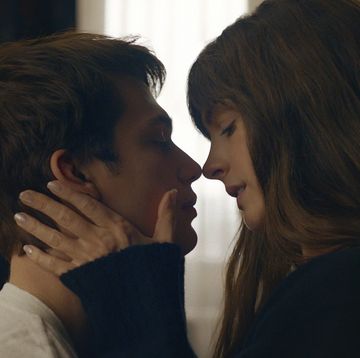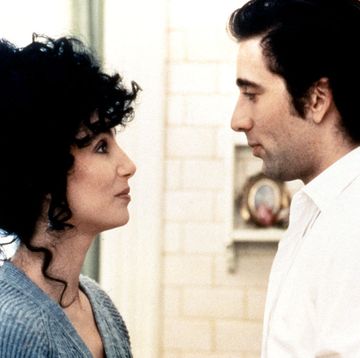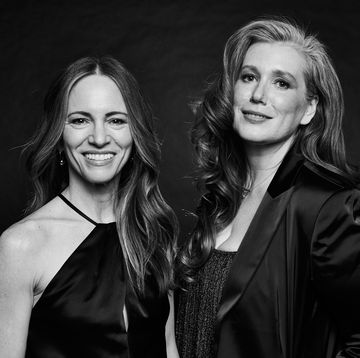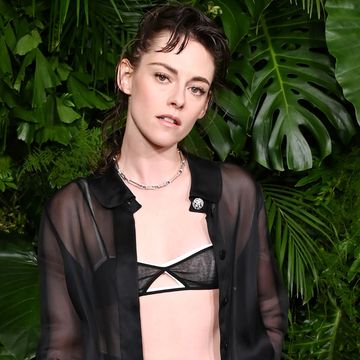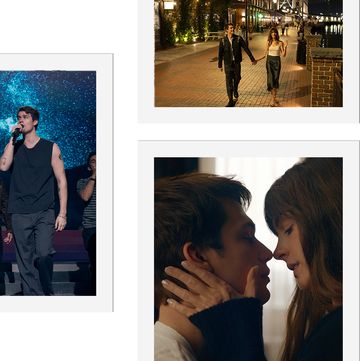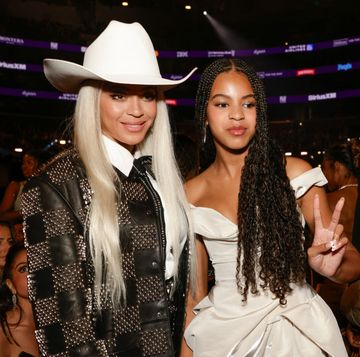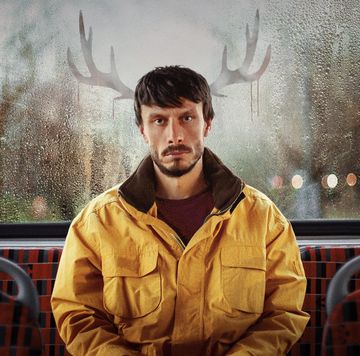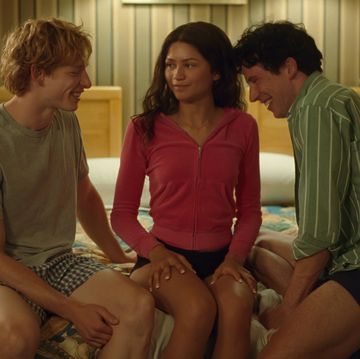The first time Irish actress Kerry Condon worked with playwright and filmmaker Martin McDonagh, she was barely 18 years old. He had cast her in The Lieutenant of Inishmore for the Royal Shakespeare Company just around the same time that Condon was also making history as the youngest actress to ever play Ophelia in an RSC production of Hamlet. The Lieutenant of Inishmore was the second of a trilogy of plays written by McDonagh, and years later, Condon would be cast in a re-staging of the first, The Cripple of Inishmaan.
Condon would remain one of McDonagh's collaborators throughout her career, and he would remain one of her biggest boosters. Meanwhile, she's worked steadily in television and movies—on shows like the HBO drama Rome (considered one of the most expensive productions in the history of TV when it premiered in 2005), AMC's Better Call Saul, and Showtime's Ray Donovan. She also has the distinction of appearing in six marvel movies—totaling over $8.2 billion at the global box office—by playing the voice of Iron Man's A.I. named F.R.I.D.A.Y. (Watch out, ChatGPT.)
But this year, Condon found herself on a different trajectory, embarking on her first awards season for her much-lauded role in The Banshees of Inisherin. She's been a mainstay of the Oscars conversation, landing Best Support Actress nominations for countless critics association awards, the Golden Globes, and the Screen Actors Guild Awards, as well as taking home the award at the BAFTAs. And at this Sunday's Academy Awards, she's a strong contender in a competitive category that includes Angela Basset (who won the Golden Globe for Black Panther: Wakanda Forever) and Jamie Lee Curtis (who won the SAG for Everything Everywhere All at Once).
The Banshees of Inisherin centers around the sudden dissolution of a friendship between two men, Pádraic (Colin Farrell) and Colm (Brendan Gleeson), and how it reverberates through their town on a small island off the coast of Ireland. Originally meant to be the third of McDonagh's "Aran Islands Trilogy," it has yet to be produced as a play. McDonagh instead adapted it into a film (which he wrote and directed) with Condon specifically in mind for the role of Pádraic's sister Siobhán. Whip-smart but unable to find anyone in her sleepy town that's on her level, Siobhán is lonely, unstimulated, and stuck in a small cottage with her loving but dull brother and his donkey. Condon's role is perhaps the most grounded among the cast of characters ranging from quirky to straight-up strange. Now 40, Condon is playing a woman far removed from the rowdy and combative girls she played in McDonagh productions in her late teens and early twenties. She brings subtle but wide-reaching dimension to Siobhán—from the malaise of unfulfillment to the sudden fire of an exasperated revelation—and modulates it all perfectly into the darkly comic signature style of McDonagh's work.
In the final days before Oscar night, we spoke to Condon on her breakout role (spoilers ahead), connecting with Siobhán, acting with Colin Farrell and more than one donkey in a cramped quarters, and the alternate ending to the movie that we'll never see.
You have a long history with Martin and know his work very well from all your collaborations together. But what was your first reaction when you first read the script for The Banshees of Inisherin and met the character of Siobhán?
Well, there were different versions over the years. Martin had spent a good few years on it when it was a different type of a script. It had the story of the friendship breakup, but also had this whole other storyline. And then it kind of went away, and when it came back, Colin and Brendan's storyline was the main focus.
So initially when I read it, my reaction was, honestly, that my part wasn't as much fun as the previous parts I had played for Martin in the theater. Those parts had been when I was much younger, and they were of young girls who had the arrogance of youth, they were brazen, they were real foulmouthed, and they were just a lot of fun to play. And I remember thinking, Ah, it's too bad this isn't as much fun as those parts. But at the same time, I was just so grateful to be asked to do the movie. And then when I started to workshop the character and really think about it, I realized that this character was actually more challenging than those parts because it's not as obvious. She's much more private, more mature. She's more like me at this point in my life. The other parts I'd played when I was around my early twenties. But this part was for a woman who had really lived and experienced sadness in her life. So then I started to get much more excited. It was going to show a different skill. It was going to be harder, but in a good way.
You mentioned reading different versions of the script over the years. Was Siobhán's story different in those drafts?
It was different, but her actual character wasn't very different; she was still lonely, living with Pádraic on their own. But it was different in that she died in the end of the original version. And I loved the death scene. It was so smart and clever. But, you know, it wouldn't be the first time I've read a script for Martin and there's been an amazing part for me and then no one ever sees it. It's almost like, "Noooo, Martin! This is too good for nobody to ever see it!" But that's the way it goes! I'm sure he's going to come up with plenty more great ideas in the future. But this one won't see the light of day.
How did she die in the original script?
Oh, it was really beautiful. There was this whole other story where this fella comes in from the mainland and he kind of tricks—wait, no, I don't know if I should say because someone else is going to pick up this idea and run with it. No, I can't say it!
Fair enough! But do you think that the actor in you really wishes you could have had your amazing death scene?
You know, I ultimately agree with Martin. The other script was a bit convoluted and there was too much going on. And I don't feel hard done by it because I didn't get a dramatic death scene. Jesus, not at all! Part of being a good actor is knowing your place in the story. And I knew my place of the story, what I represented, and what the purpose of my character was. The movie's not Kerry Condon of Inisherin, you know what I mean? [laughs]
I actually loved the film's ending because her story is left somewhat open. She gets the letter from Pádraic telling her that Dominic died, and so I wonder what she would think or how she would feel when she gets the letter. Would she think, Oh, Jesus, I saw him in at the lake, and put two-and-two together? How would that affect her going forward? It adds another layer of heaviness to her life. But I imagine that she never goes back to the island and probably never sees Pádraic again. She probably just writes to him, but they never—oh, it's so sad to think about! [laughs]
If it's any consolation, one of the things that I loved about the movie's ending was the sense of relief and lightness we feel knowing that Siobhán was able to get out and start a new life.
Everyone says that! It's so funny, isn't it?
Martin's work, and this movie in particular, mingle darkness and humor in a very particular way. How were you able to find that humor in such a dark story?
That was very easy for me because this would be the fifth time I've worked with Martin. So I was really aware of the dark comedy [in his material] and how that plays out. When you perform it in theater, you get an immediate response—you hear the laughs and you learn that if you pause a little too soon or if you deliver the line slightly differently, you lose the laugh. So I was very aware of how that worked in theater and I presumed it would work the same in film. I didn't need to find the humor, I saw the humor when I read it; I feel like the humor was already in the lines.
Do you think that awareness came from your theater training in general or from your previous work with Martin specifically?
I think it's probably both. Because almost all the theater that I've done, barring two plays—Hamlet and a play by Dennis Kelly called After the End—I've done with Martin. So my theater experiences and my collaborations with Martin are kind of one and the same.
Siobhán and Pádraic spend a lot of time in close quarters in the film. How did you and Colin build a dynamic together that captured the kind of familial relationship between two people who've been cooped up together their whole lives?
We had a rehearsal period, which is always very helpful. And then during the shoot itself, all the scenes of Siobhán and Pádraic in their cottage were shot in the first three weeks. So it was just me and Colin every day. We had our routine—in the mornings we ran our lines and got ready together. And we went to the cottage early, before shooting began, to become familiar with it. I had a situation on a previous job a good few years ago where I first arrived to set on the first day of shooting, and I felt like it was too late to get familiar with the place. Things didn't read the same as they had in my mind. I learned that lesson the hard way, so I asked Martin if we could go a little bit early to get used to the house and where everything was.
And then, obviously, the rest is being an actor! What do you do, how do you behave, how do you move when you're stuck bored on an island all day? You don't walk around in a spritely manner when you're sick of your brother annoying you and you've been working all day and cooking all night. No, that's a waddle!
Siobhán wasn't the only woman in Pádraic's life. There was Jenny the donkey too. How was it working with your animal co-star?
Well, I have horses of my own and I did a job years ago [HBO's horse racing drama Luck] when I played a jockey and basically all my scenes were on horseback or with a horse, so I'm very used to being around animals and working with animals. That came very naturally to me. You just need a lot of patience with an animal, so we basically shot everything that didn't have Jenny in the frame, like close ups and all that stuff, and then when Martin had gotten everything he needed from us, we'd bring in Jenny. And then you just have to be very open and free to go with whatever she's going to do. Because you never knew what she was going to do!
But she was a cute little thing, and she had a friend with her too because donkeys, like horses, feel more confident in pairs. So we had two donkeys in the house! And the other donkey had seen it all; she was a real pro. That's why they had her. She'd walk in with no fear and Jenny, who was much younger, would follow her lead. She'd be like, Oh, well if Rosie is chilling out, I guess I don't need to worry either. So she would be on set, off-camera, keeping Jenny calm.
For someone who bought a ticket to this film and wasn't familiar with Martin's work, I imagine there's a bit of curve involved in understanding his style of storytelling.
And his tone too! Because you think, Wait a minute, this is super-serious and dark but I'm…laughing? It's a confusing experience! But that's why I liked Martin so much: because he has a really good way of delivering very deep-thinking stuff through humor. In the moment, you're in it and you're laughing at all these absurdities, and it's only after you leave the cinema that you begin thinking back over it.
How many times have you seen the film? Have you been able to observe people's reactions to it in real time?
The first time I saw it, it wasn't with an audience. It was in Dublin, and it was just me and Brendan and a few people that we know. Then the next time was in Venice at the film festival. I really wanted to go see it in the cinema when it came out, but I didn't want anyone to see me sitting there watching myself. They'd be thinking, Jesus, she can't get enough of herself! So I didn't go. But I would have loved to see it in a cinema in Ireland especially to have heard where in the film people in Ireland laugh and react.
That's what so satisfying about theater—you get that immediate reaction while you're performing. But a film is different. I remember when we were in Venice, Martin said, "The movie's not ours anymore." And at first I thought it was such a strange way of looking at it, but then I saw what he meant. You have to give it over to everybody else. You hand it over and have to walk away. It's there's now.
This interview has been edited and condensed for clarity.

Nojan Aminosharei is the Entertainment Director of Men’s Health and the Special Projects Editor of Harper’s Bazaar. He was previously the Entertainment Director of Hearst Digital Media, and before that a Senior Editor at GQ. Raised in Vancouver, Canada, Nojan graduated from NYU with a master’s degree in magazine journalism. The late Elaine Stritch once told him, “What the fuck kind of name is Nojan? I’m 89 years old, I don’t have time for that shit.”
